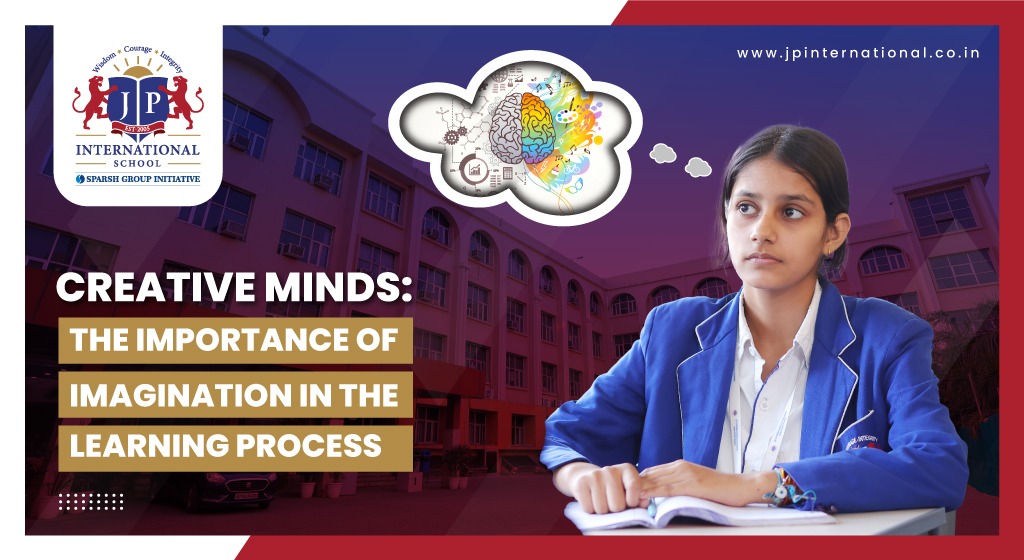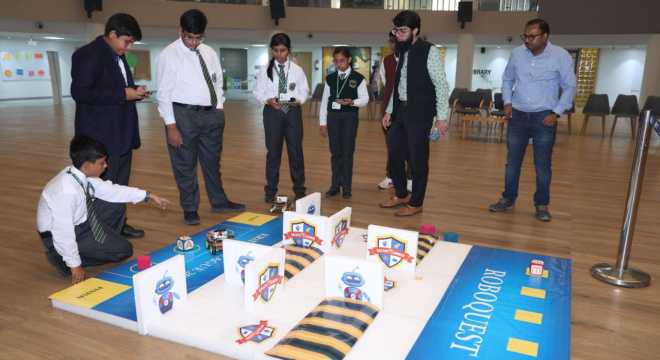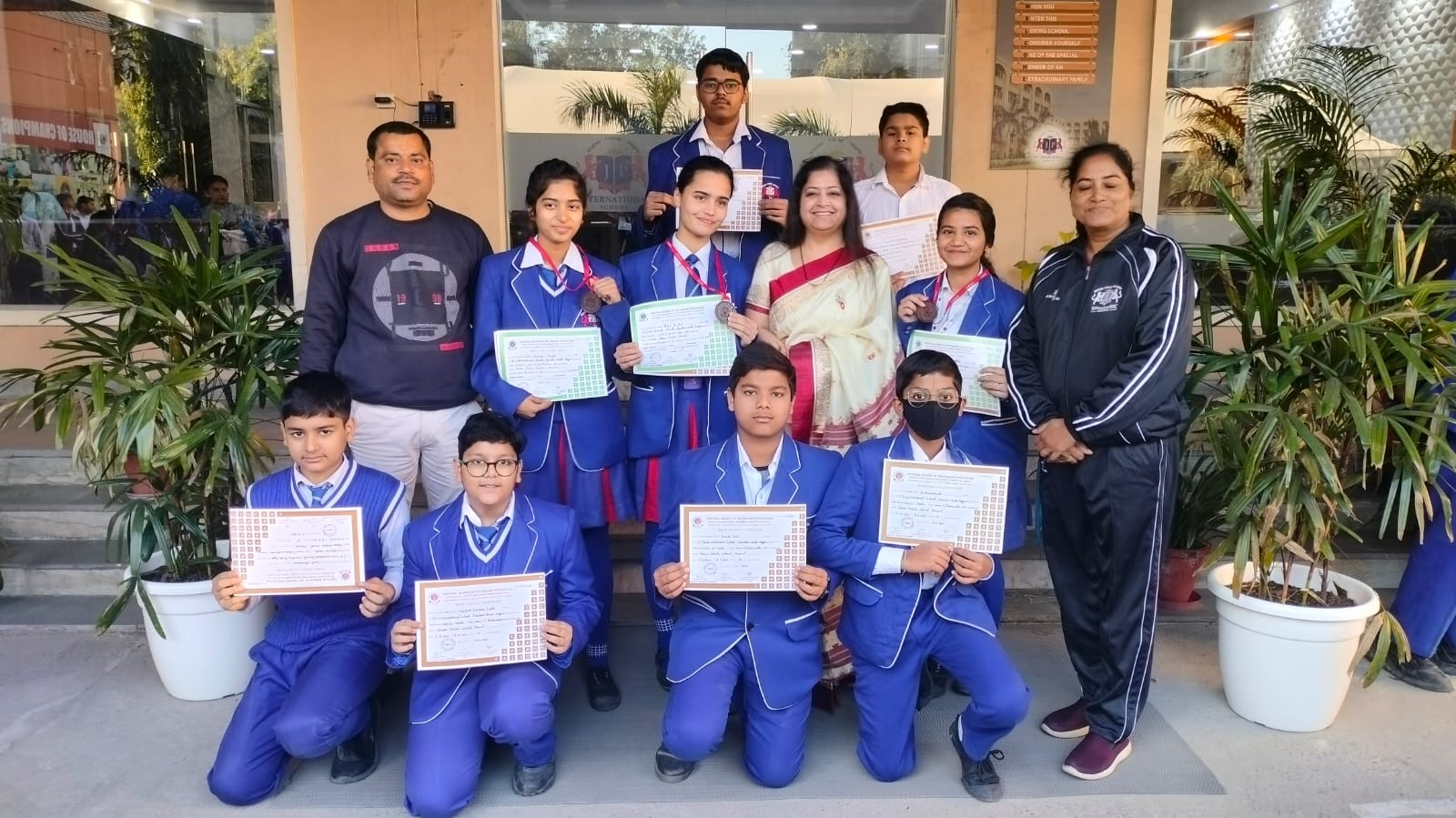

T:+91 7669-933-404
Email: [email protected]
Plot 3A, Sector Omega 1, Near Pari Chowk, Greater Noida, GB Nagar, Pin Code 201308


T:+91 7669-933-404
Email: [email protected]
Plot 3A, Sector Omega 1, Near Pari Chowk, Greater Noida, GB Nagar, Pin Code 201308

Cognition involves imagination, which is the foundation of creativity, problem-solving and critical thinking. Every person is gifted with the power of imagination. This is nurtured in schools and creates opportunities that encourage creation of a new generation of creative minds, problem solvers and inventors. Creative thinking is an essential aspect in the learning process and we will look into reasons why schools should encourage the development of creativity from an early stage.

While it is clear that imagination is the cornerstone of creative thinking, the importance of this skill is obvious when considering educational results in the field of art and education. Students can use creativity to develop a story for English, an interpretation of a history event or even a hypothesis in a science experiment. This facilitates the use of imagination by students that result in different possibilities and angles to a solution.
Imagination enables students to create in their mind perceivable structures that help them grasp and recall concepts that would otherwise be hard to understand. Students who engage their imagination might get closer to the understanding of the characters, their decisions and outcome of actions. Such profound and sustained understanding of the material is the consequence of intense, imaginative engagement with the content.
Use of “what if” questions helps students think out of the box and consider a range of possibilities and innovative solutions. Imagination also assists children into developing creative minds whenever they face a given set of challenges. Rather than memorising, students comprehend how to come up with innovative strategies. Sustainability Talent is important in today’s fast-paced, ever-changing environment because this talent involves creativity and the ability to adapt.
Creativity and critical thinking are two things that enable invention to happen. Students perceive failure as a stepping stone to achievement through creative thinking and out-of-the-box solutions. They consider every failure and loss as a chance to rewind and begin afresh.
Schools that deem creativity important have an environment that allows children to experiment, fail and create novelty. The learners, in particular, of such a setting are bound to possess a ‘growth’ orientation where they are willing to challenge the status quo, experiment with appropriate ways of doing things, and are willing to take risks.
The responsibility of educators to encourage students to use their imagination while studying is crucial. Teachers who encourage students to use their imagination and think creatively are responsible for the majority of classroom participation and positive energy. Open-ended inquiries, innovative activities and collaborative projects may spark students' imaginations.
Instead of memorising historical facts, a teacher can invite students to envision themselves as historical characters and describe their responses to key events. Science lectures might inspire students to devise their own experiments and formulate theories. In literature, students often consider several endings to stories or try to put themselves in another character's shoes to see the story from their point of view.
To nurture creativity, schools should strive to create an environment that encourages imaginative thinking. Art studios, maker spaces, and shared office spaces are all examples of what this means. Schools can use virtual reality or simulation software to help students visualise and manipulate complicated subjects.
In addition to space and equipment, a creative learning environment encourages nurturing creativity and innovation. To encourage imagination across the curriculum, schools should highlight creativity in all topics.
Imagination is more than just a relaxing diversion from reality; it is an important cognitive tool for learning. To assist students in developing important abilities like creativity, critical thinking, and problem-solving, JP International School places a strong emphasis on encouraging creative thinking. The need for nurturing creative thinking has never been higher, and JP International School, a top school in Greater Noida, is aware of this. By emphasising on imagination, the school boosts academic achievement and develops students into creative thinkers and problem-solvers.
FAQ’s
Students benefit from developing their imaginations because it allows them to see other realities, which in turn helps them think creatively, solve problems and comprehend difficult ideas.
- JP International School19 April 2025
Whether through co-curricular activities, international exposure, or digital learning platforms, ...
12 April 2025
JP International School makes students future-ready by imparting 21st century skills through the ...
5 April 2025
A solid education from school creates opportunities for students to grow into confident, responsi...
29 March 2025
Technology allows students' everyday journey, be it in academics or outside of academics, to be t...
22 March 2025
STEM education prepares students for healthcare careers by combining biology, chemistry and physi...
 28 November 2024
28 November 2024
.jpg) 27 November 2024
27 November 2024
 8 December 2022
8 December 2022
